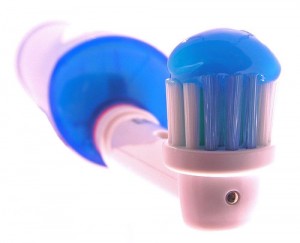Any autism parent will tell you that autism can be really time-consuming. Apart from the time spent at assessments and IEP meetings, we have to devote precious minutes to stuff like clearing up autism-related messes, dealing with meltdowns, and having arguments with people who think we’re terrible mothers because we believe the vaccine-autism theory is a load of guff and choose to keep our kids’ vaccinations up to date.
One of the biggest uses of our time is that used for teaching our kids how to do stuff that comes naturally to typically developing kids. I have told the story of how I worked with George for up to an hour a day for eleven months, just to teach him how to point. Make no mistake – the day he pointed independently for the first time made all of those hours totally worthwhile and I still well up like a leaky tap just thinking about it, but there’s no getting away from the fact that it took an enormous amount of time.
At the Geneva Centre for Autism symposium that I recently attended, presenter Peter Gerhard said something that made me stop and think. We’re so focused on teaching stuff to our kids that we don’t always stop to think about whether it’s really a necessary skill. Therefore we may, in some instances, be inadvertently wasting time that could be better spent elsewhere.
Gerhard suggests that when we’re deciding on what to teach our kids, we ask ourselves the following question:
If my child does not learn this skill, will someone else have to do it for him?
For example, I am trying to teach George to brush his teeth independently, and it is proving to be extremely difficult. Where my six-year-old just runs to the bathroom and brushes his teeth when he’s told to, George still needs hand-on-hand assistance and a great deal of coaxing.
But if I don’t help George with his tooth-brushing, his teeth will just never get brushed. Anyone would agree that this is an essential skill for George to learn. If he doesn’t brush his teeth, someone else will have to do it for him.
However, there is a step within the tooth-brushing task that I am rethinking, and that is the kind of toothpaste I use. It’s a brand of kids’ toothpaste that comes in a small squeeze-bottle rather than a tube. The thing is, you have to squeeze the bottle fairly hard to get anything out of it. The toothpaste was recommended to me by an O.T. ages ago, because squeezing the bottle would help strengthen George’s hands and thus contribute to his fine motor skills.
On the face of it, that seems like a pretty sound recommendation. The only trouble is that George hates the toothpaste itself. This in itself is not a problem. In fact, George’s dislike for toothpaste is a key element that I count on, because it motivates him to spit it out at the appropriate time instead of swallowing it. George learned how to spit because of the dreaded toothpaste.
The need to spend time squeezing the bottle creates a sense of frustration and dread for George, because he has to work so hard just to get a toothbrush full of yucky goo shoved into his mouth.
That’s not the greatest motivation, is it? And it’s probably one reason that George resists tooth-brushing time every single night.
If George doesn’t learn how to squeeze toothpaste out of a ridiculously hard-to-squeeze bottle, will someone have to do it for him?
I’m thinking probably not. George can just choose from the multitude of normal toothpastes in the grocery store and get his fine motor practice elsewhere, perhaps by doing a task he actually likes.
I will always spend a lot of time working with George, because he’s my child and I want what’s best for him, and because the moments of accomplishment make it so worthwhile.
But I will also try and really evaluate whether I am working with him on the stuff that he actually needs.
(Photo credit: digicla. This picture has a creative commons attribution license.)










